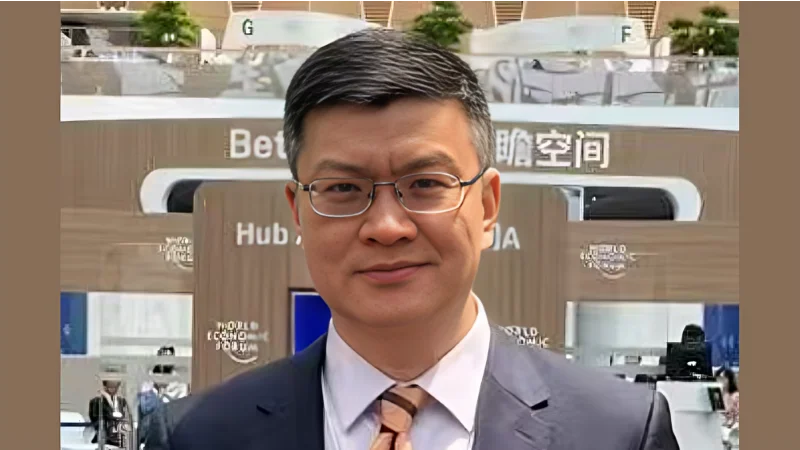Less than three weeks before the Asia-Pacific Economic Cooperation (APEC) summit in South Korea, economic tensions between the United States and China have intensified, raising doubts about a potential meeting between U.S. President Donald Trump and Chinese President Xi Jinping at the event. The ongoing delays in organizing this meeting, coupled with recent developments, highlight the challenges in managing U.S.-China relations and reflect evolving dynamics in the bilateral relationship.
Beijing views a successful meeting that yields mutually acceptable results as desirable for stabilizing relations. However, compared to previous years, China’s approach to negotiations with Washington has shifted. After experiencing tariff disputes during Trump’s first term and export controls under President Joe Biden, Chinese policymakers now see long-term growth as increasingly reliant on domestic markets and innovation, rather than integration with the U.S. and Western economies.
Since Trump’s return to office, U.S. foreign policy has changed significantly, including a sharp increase in tariffs on Chinese goods after April. Despite economic difficulties, Chinese policy measures since last September have aimed to boost business confidence at home, while recent technological advancements have reinforced a belief that China can manage deeper economic and technological separation from the United States.
The U.S. has introduced new policies targeting China, such as the Bureau of Industry and Security’s new Affiliates Rule, which places over 3,000 subsidiaries of Chinese companies under existing export restrictions. The Office of the U.S. Trade Representative has also imposed high port service fees on Chinese-owned and Chinese-built vessels, which could significantly reduce revenues for Chinese shipping firms. In response, China has implemented strict export controls on rare earth materials and technology, applying a form of jurisdiction similar to U.S. practices.
As a result, Beijing’s negotiating stance is now based on the idea that while reaching a deal would be positive, not reaching one would not be disastrous. The recent disputes over tariffs and sanctions indicate that China is negotiating with greater confidence, seeking balanced outcomes rather than making concessions.
The current escalation in economic tensions serves as context for any potential meeting between the two leaders. Both sides are using policy measures as bargaining tools in an ongoing strategic contest.
Questions remain about what China hopes to achieve in a summit. U.S. policymakers often focus on specific issues like tariffs or technology restrictions, while Chinese officials prioritize the overall framework for stable relations. From Beijing’s perspective, the act of meeting itself is valuable, signaling stability to both domestic and international audiences.
A meeting in South Korea or in the following year could start a process to restore predictability to U.S.-China relations. Beyond presidential engagement, Beijing is interested in resuming regular exchanges among government departments to address concrete issues, including tariffs, which remain a central concern.
While it is unlikely that tariffs will return to pre-2025 levels, a stable arrangement could provide predictability for both economies. China may also expect the U.S. to ease high-tech export restrictions or avoid introducing new ones, as suggested by U.S. Treasury Secretary Scott Bessent.
There are reports that Beijing might encourage large-scale Chinese investment in the United States, which could benefit both countries if investor confidence is sufficient. Such investment could shift the nature of economic interdependence between the two nations toward a more balanced relationship.
Fentanyl is another area of concern. Progress was made during the Biden administration, but Chinese officials view the Trump administration’s approach as driven by domestic politics rather than substantive cooperation. Despite this, counter-narcotics remains an area where both countries can work together.
Beijing will also expect reaffirmation of the “One China” policy from the Trump administration, though significant progress on Taiwan is unlikely in the near term due to the complexity of the issue.
It remains uncertain whether Trump and Xi will meet in South Korea later this month. If not, there may still be opportunities in 2026. Observers generally have modest expectations for any summit, emphasizing the importance of managing expectations without becoming fatalistic about the future of U.S.-China relations.
"If a meeting in South Korea or a summit next year can launch a process of sustained engagement, and if both presidents maintain regular communication to prevent unexpected disruptions, their renewed interaction may create the political space necessary for a more stable and constructive relationship in the years ahead," writes Da Wei, Director of the Center for International Security and Strategy and Professor in the Department of International Relations at Tsinghua University.
The Brookings Institution notes its commitment to quality, independence, and impact, stating: "We are supported by a diverse array of funders. In line with our values and policies, each Brookings publication represents the sole views of its author(s)."





